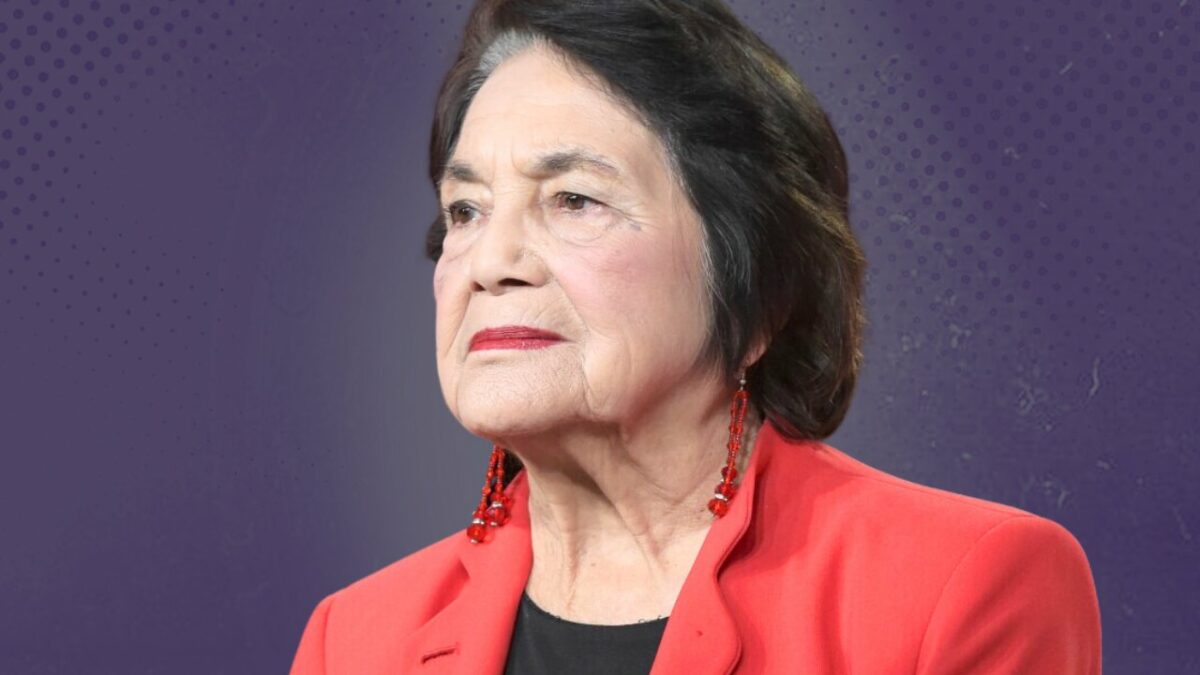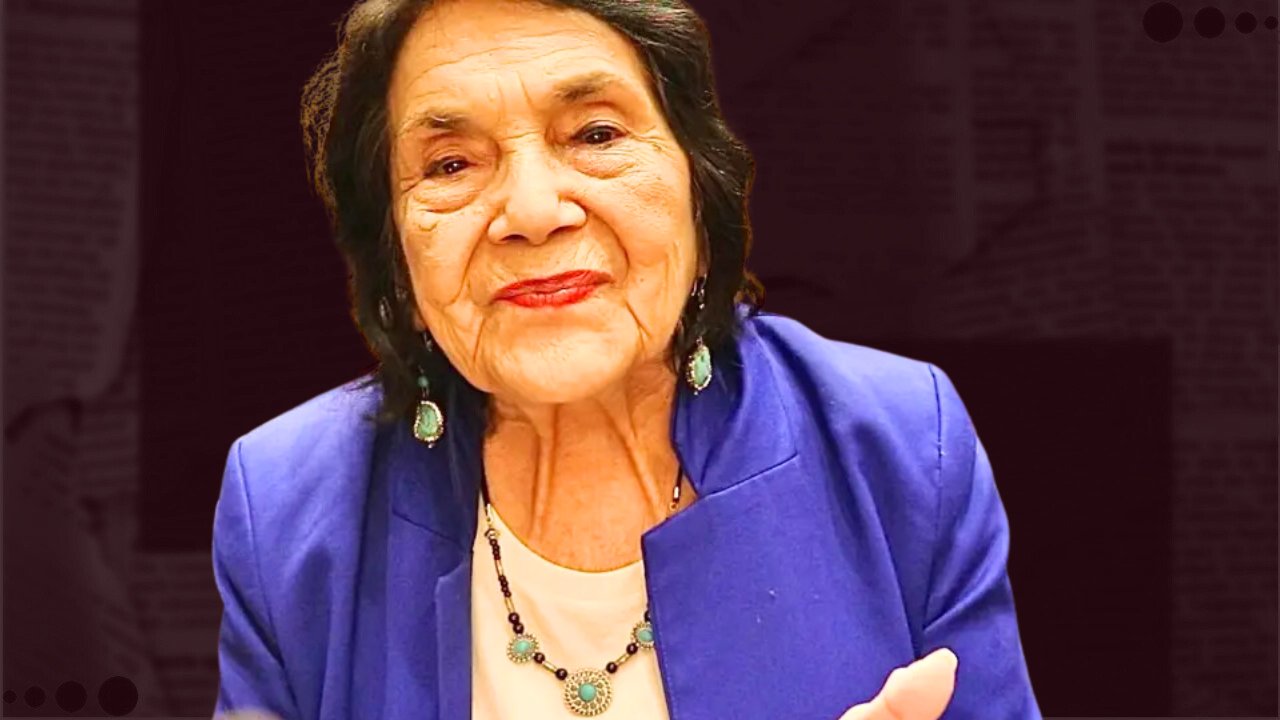In 1955, Huerta and Fred Ross co-founded and organized the Stockton Chapter of the Community Service Organization, which fought for economic improvements for Latino/Mexican/Chicano migrant farmworkers.
Who is Dolores Huerta?
Dolores Clara Fernández Huerta is an American labor activist and co-founder of the United Farm Workers alongside Cesar Chavez.
Her birthday is April 10, 1930. Huerta played a significant role in the contract negotiations that followed the California Delano grape strike in 1965.
Huerta has won numerous honors for her work in the community and support of immigrants, workers, and women’s rights, including the United States President Eleanor Roosevelt Award for Human Rights and the Eugene V. Debs Foundation Outstanding American Award.
In 1993, she became the first Latina to be honored in the National Women’s Hall of Fame. Huerta is celebrated in many corridos and murals as a role model for the Latino community.
April 10 is Dolores Huerta Day in California. In the New Mexico mining community of Dawson, Dolores Huerta was born. She is Juan Fernández and Alicia Chávez’s only daughter and second child.
Is Dolores Huerta still alive?
Huerta, 92, is still active as an activist today through the Dolores Huerta Foundation. She expressed her desire for her legacy to be one of motivating others to take action.
It’s a simple sentiment, but the phrase “sí se puede” or “yes, we can” has powered demands for justice around the world ever since the United Farm Workers of America adopted it as its motto in 1972.
Dolores Huerta, a prominent labor activist and the head of the Chicano civil rights movement, is the person behind those words. Huerta claimed that the motto she created still struck a chord with her.

Huerta’s career as an organizer began in part as a response to the Californian police brutality against Mexicans. She herself was beaten by police at a protest in 1988.
She said it’s heartening to see young people engage with the system in recent years after the murder of George Floyd, but there’s one more step she would like to see young people take.
Although she is best known for her labor activism, Huerta has been a vocal supporter of a number of human rights causes and has consciously incorporated a feminist approach into her organizing.
She founded the Dolores Huerta Foundation in 2003 to support neighborhood organizing at the grassroots level. The Foundation works to build up future leaders and organize communities.
Huerta frequently promotes and exhorts Latina women to run for public office. She sees the work of her foundation as carrying on the traditions of the nonviolent civil rights movements she took part in.
The Foundation carries on Huerta’s work that she started with the Agricultural Workers Association in 1960 by engaging Californians in voter registration drives and nonpartisan candidate forums.
Dolores Huerta’s personal relations
While still a student, she married Ralph Head, with whom she had two daughters but whom she later divorced. After that, she had five children with fellow activist Ventura Huerta, though their marriage did not endure.
Huerta challenged traditional notions of what it means to be a woman, in addition to her commitment to social justice. She not only led a revolutionary labor movement but also raised eleven kids from three different partners.
Huerta’s brief union with her high school sweetheart, Ralph Head, produced Celeste and Lori. She married Ventura Huerta, a fellow farm labor activist, a few years later, in the 1950s.
Fidel, Emilio, Vincent, Alicia, and Angela were their five offspring. Ventura believed Dolores spent too much time at the Stockton Community Service Organization and not enough time on household duties, which led to their divorce.
From her long-term union with Richard Chavez, César’s brother, Huerta, had four more children. Huerta and César Chávez co-founded the NFWA, while Huerta was a mother of seven children and lived off of a $5 weekly salary as well as food and clothing donations.
When Huerta saw so many hungry farm children attending school in the 1950s, she decided she could do more to help them by uniting farmers and farm workers.
